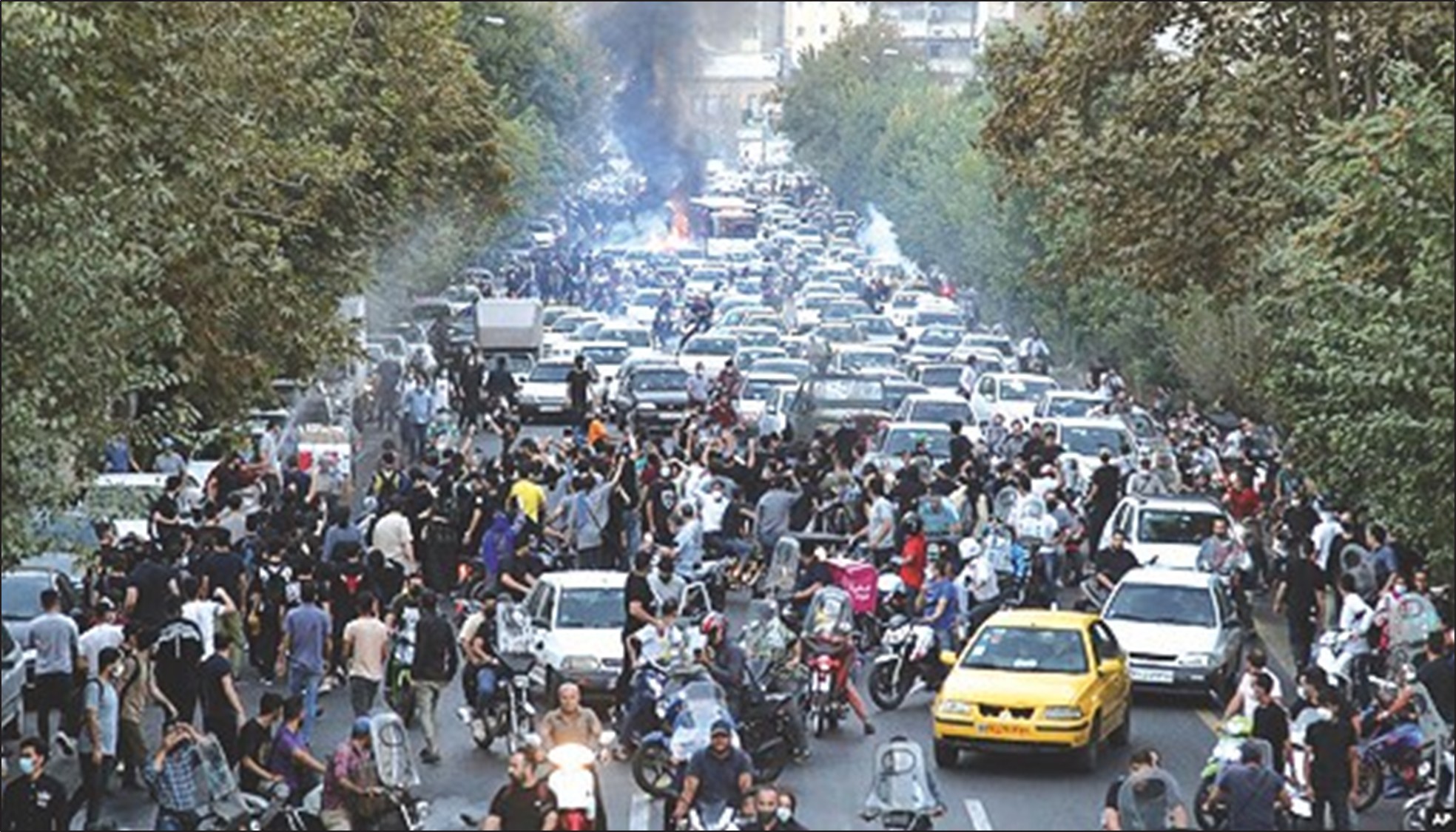By Tamer Badawi
In early July 2015, President Hassan Rouhani published an open letter to First Vice President Eshaq Jahangiri, declaring his intention to undertake “structural reforms” in the Iranian economy. If successful, these would fulfill his election promises and lay the groundwork for greater foreign investment, which he expects to play a pivotal role in reinvigorating the Iranian economy after the nuclear deal.
These reforms will be generally focused on enhancing the banking sector, amending the country’s investment legal framework, and increasing fiscal discipline. If, as expected, reformists and centrists dominate the upcoming parliament (to be elected in early 2016), Rouhani’s administration will have more support to boost these economic schemes. But the Islamic Revolutionary Guard Corps (IRGC) sees foreign—especially Western—investments not only as a potential threat to the country’s national security, but also to the guards’ control of the private sector, which they have used for several years to manipulate the economic scene.
Foreign Direct Investment (FDI) has increased during the first three months of the current Persian year, reaching $3 billion. But still the Iranian administration has to make robust efforts to reach its ambitious FDI target. Tehran is presently eyeing between $100 billion and $185 billion of foreign investment in its oil and gas sector. This would exceed the $157 billion in foreign investments that Mohammad Bagher Nobakht, the president’s adviser for Supervision and Strategic Affairs, expects Iran to secure for its 2016-21 five-year developmental plan—which predicts an economic boom following the nuclear deal and sets targets for investment, employment, exports, and other economic indicators accordingly.
To reach this target, the administration has to overcome the IRGC’s entrenched economic interests, which obstruct the development of an attractive investment environment. The IRGC’s reach into the Iranian economy has been growing since the Islamic Republic embarked on liberalization in the early 1990s. After the war with Iraq, former president Akbar Hashemi Rafsanjani tasked the guards with assisting the government in reconstructing the country, which allowed the IRGC to expand into the oil, housing, agriculture, mining, and transportation sectors, among others. This trend continued, and under Mahmoud Ahmadinejad’s presidency the IRGC engineering conglomerate Khatam al-Anbia was awarded an unprecedentedly large number of no-bid contracts. The IRGC was awarded an estimated 10,000 projects between 2006 and 2013.
In 2006, when Supreme leader Ali Khamenei issued an executive order to privatize 80 percent of the public sector, the guards and their affiliated corporations were poised to enormously expand their economic role. By some estimates only 13.5 percent of Iran’s state-owned enterprises sold off between 2006 and 2010 went to the genuine private sector. The rest of the $70 billion worth of assets went to para-governmental organizations—like IRGC-linked corporations and the Social Security Investment Company (SHASTA)—or to various pension, charity, and “justice” funds. By 2009, private banks held only about 34 percent of the country’s total long-term deposits and 25 percent of its short-term deposits.
Since president Rouhani took office, the pace of privatization slowed down as the administration sought to reduce the financial influence of parastatals. Reportedly, there are about twelve major banks and financial institutions known to be directly and indirectly linked to the IRGC and the armed forces. Together with other parastatal financial institutions, the IRGC-linked banks are believed to be manipulating interest rates and maintaining fake bank accounts. Recently, the Central Bank of Iran and other sources hinted at the existence of around 30-38 million accounts, implying they are being used in shadowy transactions. These fraudulent activities, together with the excessive investments of parastatal-related banks in other sectors, are curbing banks’ ability to hand loans over to private sector industrialists seeking to develop their operations.
For Rouhani, the challenge is how to make domestic producers more competitive while lowering unemployment. If Rouhani opens up the market to international trade and investment, many local small-scale industries (particularly labor-intensive ones that need better technology and capital to be competitive) might not be able to compete with foreign players, and vulnerable local produces can go bankrupt, raising unemployment.
The guards are reluctant to see a widespread influx of foreign investment. However, in some sectors, such as oil, transportation, and mining, IRGC elites could use their strong position to attract limited FDI, especially to support technological advancement in specific areas they control. The IRGC will likely limit carefully vetted investments in other areas, such as the telecommunications and aviation industries, where the IRGC sees outside competition as a security risk. Similarly, Ali Reza Klahi, the head of Iran’s electrical industries Syndicate, warned that allowing Chinese investment in electricity production projects will threaten the domestic players. In these cases, the IRGC and its associated business constituencies can create bureaucratic complexities, use their security veto, and manipulate market connections to minimize the entry of foreign investors.
Although the IRGC is generally opposed to foreign investment, they are likely to reach an agreement with the Rouhani administration. The administration may award the IRGC more projects in sensitive subsectors in exchange for their expected flexibility in allowing foreign investors into other, less vulnerable sectors. The guards could use this bargaining strategy to reposition their interests in light of the country’s anticipated reintegration into the global economy without being significantly undermined.
Rouhani’s administration faces the challenge of how to give IRGC conglomerates roles in upcoming mega economic schemes while keeping them in check. To keep the financial sector healthy, Rouhani’s administration needs to control but not undermine the IRGC’s economic arms. Despite the anticipated inflow of investment since the nuclear deal, the IRGC’s economic role as a producer and subcontractor will remain important for a long time to come.
Tamer Badawi is a freelance researcher and writer specializing in Iranian affairs.





















